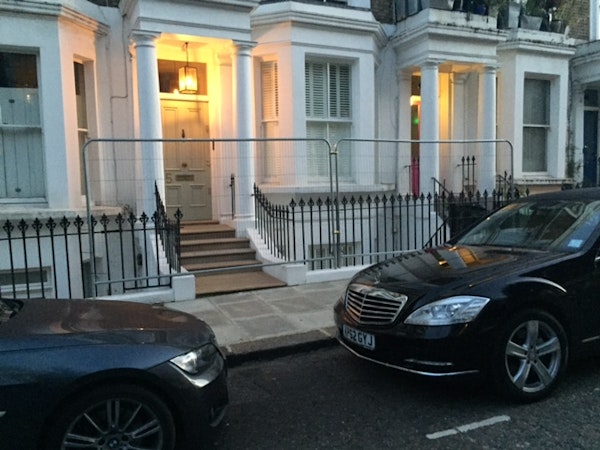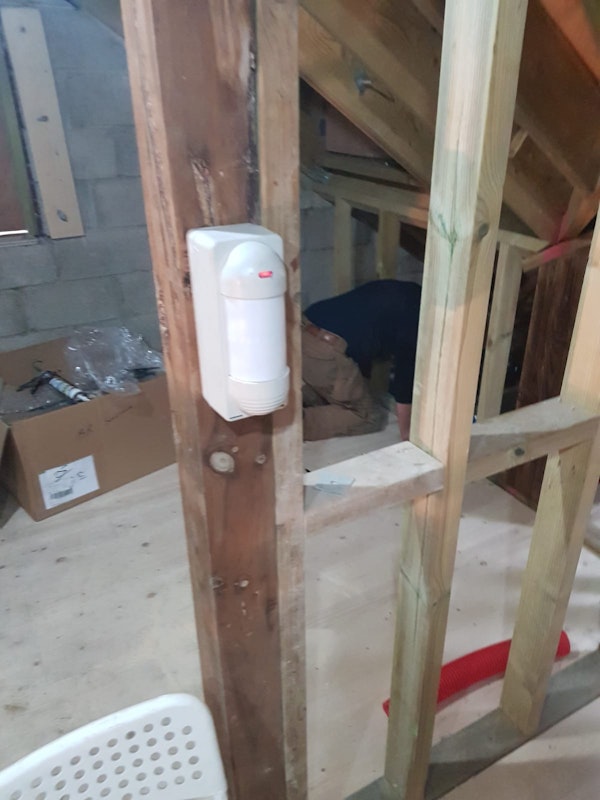- Fully qualified & insured teams
- Free site assessments
- Rapid response
- Rated Excellent
Top Tips for Selling Your Vacant Property
Selling any property can be stressful enough, but selling a vacant property seems to come with additional concerns, such as keeping the property secure to minimise the risk of break-in and trespass yet also keeping the property well maintained and saleable whilst facilitating strangers coming around for viewings. But prioritising achieving a sale doesn’t have to come at the cost of compromising security, as these top tips for selling your vacant property show…
1) Create the lived-in look
Vacant properties usually take longer to sell than occupied ones, and often sell for less, so staging the house so that it looks occupied is considered the ideal way to both sell and protect a vacant property: furnishings help prospective purchasers to ‘visualise’ the house as a home and also keep your property secure by appearing lived in rather than empty. Ways to do this include:
- Until the property is sold, keep some furniture there. This gives potential purchasers an idea of how the layout of the house works, eg: table in the dining room, bed and fittings in the main bedroom but will also make the property seem occupied – just ensure that these are budget or unwanted items and not valuable heirlooms or antiques.
- Use second-hand furniture or sale items to achieve the lived-in look if you have had to move your furniture out to your next property.
- Use accessories and soft furnishings to keep the illusion of the house being occupied – curtains can double to support security, by being closed at night to make the house look lived in, whilst fake plants can create atmosphere without creating additional work, whilst also giving the appearance from the outside that the home is occupied. Little details like lamp shades rather than bare bulbs and having warm rugs rather than just bare boards or laminate floors can be particularly helpful if trying to sell in the winter, whilst wall art and soft furnishings can also help to stage the property for sale, but again do choose generic rather than valuable items.
- Using appropriately sized furniture can help achieve a sale by offering perspective on room size. For example, it can be hard to for a potential buyer to gauge the width of a room from the dimensions, but seeing a 3 seater sofa fitting comfortably in the space can help them to judge the space available.
- Keeping up regular routines such as post and lights on / off using timer switches can add to the lived in look, but these do need to be a part of regular checks on the property (ie: every couple of days). If this cannot be done regularly, then it is better to have post forwarded to another address because nothing demonstrates that a property is empty and unsupervised more than a pile of post mounting in the hallway or, worse, visibly stuffed into the letter box.
- Consider whether utilities should be turned off in the long term or kept on in the short term to help achieve this lived-in look, such as keeping the electricity on so that lights and timer switches can be used. It can also be helpful to maintain utilities such as heating and keep this on a low background level, which has the double advantage of helping to prevent pipes from freezing in the winter whilst also making the house welcoming for winter viewings.
2) Keeping up the appearances
Maintaining the lived-in illusion with the estate agent photographs is also important as many estate agents use their websites and online portals for showing off the properties on their books. Unfortunately it’s not just prospective purchasers who spend time trawling the listings as criminals also often seek out the empty properties from property listings. As listings invariably offer location maps, including ‘street view’ options, it can be incredibly easy to identify a property address from online estate agent listings. By making sure agents take photographs with furniture in the home , or staging it with home comforts prior to the photos being taken will keep up the appearance of the house being lived in rather than empty and actively advertised your home as being for sale, rather than actively proclaiming that it is vacant and vulnerable!
3) Secure viewings
The more viewings a property has, the quicker it is likely to sell but as those strangers need to come through the door, it can be hard to maintain security when a property is vacant. To ensure security from viewings, as well as achieve a sale:
- Try to facilitate viewings yourself and arrive early to remove post, air the house and conduct checks on the property whilst you are there.
- Use an estate agent to conduct accompanied viewings if you cannot be there – ask them to arrive in advance of the client so they can check the house over and ensure they know processes for securing the property properly when leaving (setting the alarm for example).
4) Who needs to know?
If your property is empty, it is worth considering who needs to know this:
- Local authorities may be informed via the local council offices, particularly as council tax can be reduced for empty properties and it is a way of letting the authorities know that the property is vacant.
- It may also be appropriate to also let the local police or community support officers that the property is empty and advise your insurance company.
- Letting neighbours and representatives of the local Neighbourhood Watch know that the property is empty is a way of enlisting informal local help to keep an eye on it. This can be requested in a mutually beneficial way, such as by offering a neighbour the use of the drive to park their car on – this may help ease their parking headaches whilst bringing them into close daily contact with the property so that they can spot if anything is amiss. It will also make the property seem far less visibly vacant from the kerb side.
- If there is an alarm fitted, then letting the alarm company know so that they can respond quickly is also important. It is also worth putting your estate agents and Alarm Company in contact with each other, in the event of issues arising.
5) Successful security
Security is important for all vacant properties, including those for sale. Additional security measures to consider include:
- Lighting set to timer switches for interiors (that lived-in look), but also for outside lighting, such as motion sensor lights to help secure the garden and boundaries.
- Having an alarm system installed or a dummy alarm, to give the property the appearance of this additional protection.
- Securing entrances, including checking door and window locks and reinforcing these if necessary. If you have previously been renting out the house and now wish to sell, it may be better to change the locks and issue keys only to your chosen representatives and estate agent, so you can be sure that previous tenants can no longer access the property.
- Leave keys only with reliable persons such as a neighbour (for quick access) or estate agents (for viewings) and even have a neighbour check after viewings to ensure that the property has been locked back up effectively.
- Check all access points, including those on the property boundaries such as garden gates and fences.
6) Maintenance programme
Having a regular programme of maintenance for a vacant property is a must, and it’s particularly important when you are selling. After all, keeping the garden trim will not only help to sell the property – less work for the prospective buyers and will help them to ‘see themselves’ in the home, but will also add to the lived-in look of the property, deterring trespassers.
Maintenance also includes inside the property, as decorating throughout, even on a low-budget just to clean it up after previous tenants or from removals scuffs can go a long way to helping achieve a sale. Neutral colours are always recommended, but choosing tones which add a little warmth is recommended to make the home feel welcoming, particularly as a house which has been empty for a while may feel cold and uninviting to viewers. Decorating also lets potential buyers focus on the layout and space and how they might live in and use the rooms, rather than zone in on the faults such as chipped paint and broken tiles.
Finally, whilst all of the above is important to help you find a buyer and achieve a sale, it’s just as important to keep regular checks on the property once a sale is going through. The quicker any problems such as leaks or flooding are identified, the quicker and cheaper it will be to fix, don’t let lack of regular checks cost you a sale by making sure you do plenty of viewings of your vacant property yourself!
Request a free no-obligation quote
We respond in under 30 mins on average (excl. weekends)

